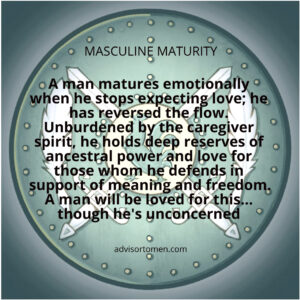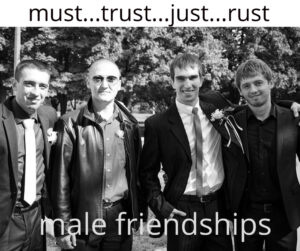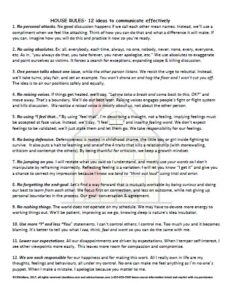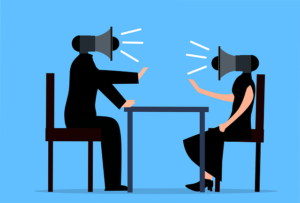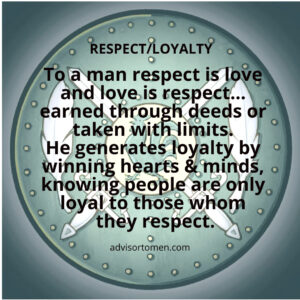

HUMAN NEEDS
Abraham Maslow once said, “If you are planning on being anything less than you are capable of being, you will probably be unhappy all the days of your life.” Codifying human needs usually mentions his 1943 work, almost always illustrated by others later as a hierarchy with self-actualization at the top.
John Schindler, co-founder of the Monroe Clinic in Wisconsin, who in 1954 wrote, How to Live 365 Days a Year, said we have six needs: love, security, creative expression, recognition, new experiences, and self-esteem.
Tony Robbins adapted these into three pairs to simplify our understanding of basic human needs: Certainty & Uncertainty, Significance & Love-Connection, Growth & Contribution.
While the ranking of needs in importance is individual, survival requires meeting at a minimum the first four needs. Overall life satisfaction depends on meeting all your needs in adaptive ways. This not only decides our attraction to others, but influences being able to experience love as opposed to unhealthy dependence. Adulthood means learning to meet your needs in healthy ways, and if necessary, autonomously. They are your needs.
No matter what race, sex, religion, origin or upbringing, we humans have six basic needs. We will use the word need because for most, the word “desire” means something wanted but optional. Desire is a better predictor of human motivation according to Stephen Reiss, author of Who Am I? which includes a desire profile. However, it is enough to say needs are also desires, it is just that some you cannot do without (the first four).
Our inability to rely on ourselves to adaptively meet those needs can create unhealthy attachment. The whole of your emotional system is based on belonging according to a 1995 meta-analysis of attachment studies done by Baumeister and Leary. When you belong, your emotions rise; when you disconnect, emotions fall.
We are wired for connection, we wish for connection, and we wait for connection says Polyvagal clinician Deb Dana. Co-dependence between us is normal but exists on a continuum from healthy to dysfunctional. When the individual loses their sense of self, egocentricity may rule their relationships. Let me explain this further.
That a child is egocentric commonly refers to a preoccupation with the self. The Piagetian view is that egocentricity pertains to speech and thinking directed by individual needs or concerns. You are invited to consider that it also means no emotional separation between the child and parent. You can imagine how nature creates this egocentric emotional attunement between adult and child for survival reasons. Children therefore experience families physically.
It can be unhealthy in adults. Get to know a partner and finish each other’s sentences. Become so familiar with each other that you can predict their moods and desires, even get good at what makes them happy or sad. But do not lose yourself. When adult interdependence turns to overdependence, it prevents mature love.
We use the world love to describe connecting to others. But there are differing states that we often call love, which are not really love at all. It is important to know that not everything you identify as love, is love. I prefer belonging, for humans are mammalian herd animals.
We will consider how the six human needs fits within love as we go.
First let us look at the six human needs one at a time
Certainty – This is the primary survival need, to avoid pain and gain pleasure. It is the need for connection, safety, stability, comfort, and resources to sustain us. It supplies predictability in an often painfully dangerous world.
Variety/ Uncertainty – This is the need for change, challenge, excitement, and stimulus. Paradoxical to the need for certainty, we need a certain amount of uncertainty to be happy with our life, to bust out of comfort zones and grow.
Significance – Everyone wants to feel like a somebody. To stand out and be considered worthwhile and appreciated. Often, this refers to the need for esteem and might also include a spiritual need to manifest our talents fulfilling what we believe is our purpose. Honour, the esteem of those you care about, bridges significance and connection.
Love/Connection – This is the need for connection with others. It is the need for a sense of being a part of something. It is the need for belonging, oneness with others, community, and the universe. It is the need to love and, in some cases, to be loved (when young) or at least to belong. Our need for sexual intimacy is in this section.
Growth – This is the need to grow and develop, find fulfillment, and self-actualize. To take whatever talents were bestowed upon you by heavens of infinite wisdom and sharpen these as if taking stone to steel. It is to become more.
Contribution – This is the need to contribute beyond your being and affect your world. The need to give and supply something of value for other people, the world, and the universe at large. It is the need to make a difference.
We all have diverse ways of meeting these needs. We meet them in both conscious and subconscious ways. We may be confident about meeting some needs more than others. But it is important to understand that we meet these needs (we seek happiness) in both healthy and unhealthy ways.
MEETING NEEDS: brainstorming healthy versus unhealthy
1. Certainty
Healthy: creating consistent routines to maintain your body; to nourish soul and spirit; to develop solid work habits which reliably produce sustenance; to form and preserve predictable and stable relationships. It means an internal locus of control, a positive identity, and being organized and orderly while striving for optimism, fortitude, and safety.
Unhealthy: allowing sloth, becoming obsessive or compulsive (including addictions including eating disorders and cutting), externalizing responsibility, and controlling relationships. Being unemployed or on assistance beyond necessity. Keeping a negative identity, tolerating personal shame, preoccupation with gloom, self-pity, rape, murder, war.
- Variety/Uncertainty
Healthy: trying new people, places, and things It may mean traveling, finding new hobbies/passions, engaging in stimulating conversations, networking, and meeting people, taking jobs, moving areas, watching new plays and films, seeing art, or doing art, playing games or sports, reading books, accepting challenges. Life satisfaction, growth and relationships are related to how much uncertainty you can tolerate.
Unhealthy: engaging in risky activities without adequate precaution, putting others in danger, all addictions, self-sabotage, picking fights with significant others when bored or restless, cheating while in monogamous relationships, running away from problems, quitting things on a whim, blaming, violence and war.
- Significance
Healthy: developing a positive identity, expressing your uniqueness, meeting goals, developing a sense of style, sharing belief systems that fit your worldview, seeking meaning for life and for your existence, allowing yourself to be noticed, putting your hand up in class, accepting compliments, being a problem solver, taking responsibility, leading others.
Unhealthy: Tearing others down, rescuing people, acting out to get attention, holding a negative identity, hiding behind a label, using others to gain status, lying to impress people, denying responsibility, and blaming, rape, murder, war.
- Love/Connection
Healthy: sharing intimacy, openness, becoming a part of social organizations, teams, and groups, developing compassion, time in nature, seeing the interconnectivity of all things, healthy sex, physical affection, exchanging gifts, seeing the good in others and telling them, practicing self-care, giving just because you can, quality time with others, caring for pets, having a spiritual life.
Unhealthy: Self-sacrificing, joining gangs, high-risk sex, sickness to gain attention or control relationships, off-loading problems on those around you, acting helpless, creating stories to sustain dishonesty about yourself or others, exaggerating sickness or always having problems or becoming accident prone for attention, people pleasing, rescuing others, all addictions, causing others to feel as if they need us, rape, murder, war.
- Expansion/Growth
Healthy: learning, adopting new paradigms, expanding your model of the world, letting go of old ideals, embracing technology, following your bliss, lateral thinking, consulting expertise, accepting advice, honing talents into strengths, seeking wisdom and knowledge, seeing life as a series of lessons, finding meaning in every life event in a continuous expansion of understanding of self and the nature of your existence.
Unhealthy: Pushing yourself too hard, making everything hard, not finishing things, procrastination, unrealistic challenges abandoned instead of adjusted, being unable to listen to other people, letting things get to the breaking point before you improve them, war.
- Contribution
Healthy: Random acts of kindness, being part of things that you believe in, sharpening your talents into strengths and using them to make a difference, helping others just because you can, helping to improve your community, doing your part, giving for the simple joy of giving, focusing on the solution, raising a family, defending those around you.
Unhealthy: projecting narcissism into the community, virtue signaling, using capitalism to rape the planet, joining conspiracies, joining causes which perpetuate the problem, covert contracts, self-sacrificing, war.
Notice that some things we do will meet more than one need. For example, waging war or joining a war is an unhealthy way to potentially meet every one of these needs. It is no longer such a mystery why humans have not been able to stop waging war for thousands of years when we recognize it meets many essential human needs. Whether healthy or unhealthy, or good or bad, all human behaviour can be described as need driven.
Meeting needs adaptively creates satisfaction in the self-interested brain. By meeting needs in a healthy manner, a life of meaning is possible, and you may obtain a measure of freedom from the suffering of this existence.
Chosen for life by heavens of infinite wisdom, your purpose is to make a difference manifesting your talents nearby, expanding meaning and freedom while finding your place in the sun.
It is crucial to life satisfaction that we meet every one of these six needs. The idea is not needs suppression, but to summon your adaptability around them. It is unnatural for humans to deny what they need, leaving a void that might be filled by errant spirituality, conspiracies, cults, and cults of personality. Understand your needs and the needs of those around you to gain compassion for yourself and others, and to avoid confusion and powerlessness.
Needs and Relationships
What some call a loving interdependence is a really a lopsided love that is about needing someone. This is fine to a point: everyone loves to feel like someone’s chosen, and we are wired to connect with each other. It is just that often love is a subconscious recognition that another person or thing provides us with a need that we do not feel capable of meeting on our own.
You may be blinded by the intense biochemical reaction usually associated with falling in love and become enamored with someone until they disappoint under the burden of meeting your needy expectations. Your self-concept is how you see yourself contrasted with how you believe others see you. We cannot escape the group, and we can fool ourselves.
I say we are in a perpetual search for wholeness. The key to being and feeling complete is to meet these needs in healthy ways on your own. If happiness is a decision, then let it be so with love.
Having the capability to meet needs independently means you are free to keep falling in love with a partner forever. You may even decide to put lust first… and let love take care of itself.
When we are not meeting our needs, a tendency to feel incomplete compounds and is felt emotionally. Someone who meets those needs “completes us.” Think about that next time you hear it said. All relationships are co-dependent to an extent, to which degree may revolve around how impossible it is for an individual to meet their needs autonomously.
Happiness in a relationship may be dependent on a partner meeting one or more of your needs you do not feel capable of meeting on your own. This may be obscured by “opposites attract,” when people with quite different personalities often have opposing deficiencies and strengths when it comes to meeting their own needs. What you seek is to be complementary to each other, so that the two of you combine forces and become more.
A person, who feels incapable of creating variety for themselves may be attracted to an unpredictable mate because that person creates that sense of variety and excitement for them. An unpredictable person may prefer a conservative spouse because their nature creates a sense of certainty and stable comfort for them, which they feel incapable of creating for themselves. In which case, we could say it is opposite needs that attract.
This is fine if it does not become one-sided dependence. Men need respect more than love, and loyalty. Have a look at the shield up top for more information.
The pejoratively used misnomer “co-dependent relationship” commonly refers to a relationship between people who feel so incapable of meeting their own needs in healthy ways that they are completely dependent on the other person to meet those needs for them. And from the outside, it appears as if the relationship itself is more important to at least one of the persons involved than they are to themselves. This enmeshment works… until it does not.
It is unlikely for anyone to indefinitely prioritize someone more than themselves. Even if I save my children, defend my wife, or stand shoulder to shoulder with you to fight the enemy, I am serving my self-interested brain.
We often miss what someone derives making others their priority. For example: sometimes people who selflessly prioritize the people around them are just looking for love. They may be convinced that by self-sacrificing, they will be loved in return. This covert contract is an unhealthy way of meeting that need and tends to build resentment when they are taken for granted. It is negotiating reciprocity and cooperation which underpins our interdependence.
In Conclusion
Our happiness is not the only thing that is dependent upon our ability to meet needs autonomously. Our ability to love powerfully is in fact contingent on your ability to adaptively meet needs all on your own.
Most people fear that if we meet all our own needs, there will be no purpose for relationships. Or that it means ending up alone and no longer experiencing love. That is not what happens, for the opposite is true. Instead, relationships within the bonding dynamic share even more as each can meet their own needs but also meet some of the other’s needs.
We only own three things in life: thoughts, feelings, and behaviour and these are always an individual’s responsibility. We are responsible to the people around us, not for them. All you have to offer the world is your time, talent and effort. Own these six at all times, or at least as much as you can, and you will live a satisfying life.
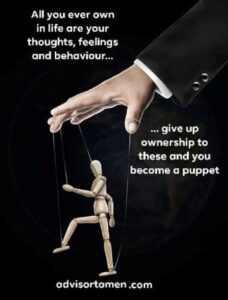
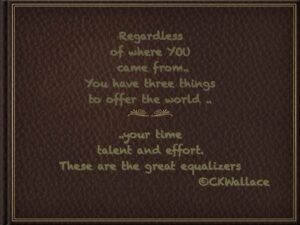
When you decide to be happy it is a decision you make independent of others and what they do or do not do. Only then will we experience adult love. Born to belong (our #1 need) nothing creates personal expansion more than relationships.
Going from relationship to relationship, trying things out, looking for completeness and answers, all those encounters inevitably point back to ourselves. The answer is still the same: you. You are what you are looking for in other people.
Carl Jung taught that we try our best to solve our problems but that the eyes see out. Because of this we tend to project our internal struggles onto those around us. Once you understand projection, you operate from a much deeper wisdom.
The tendency to search for other people to fill a need means risking they will eventually fall short. The relationship will reflect whatever you lack right back at you. Others function as tableaus upon which we paint a subconscious life.
Stop and if possible, adaptively provide for yourself. It is your job to meet your six needs. They are your needs.
From the most enlightened to the consciously impoverished person, every human in existence has these same needs. The former has perfected the art of adaptively meeting needs for himself or herself, while the latter struggles.
Consider how you are currently meeting your needs and/or the needs of your partner. Replace unhealthy ways of meeting the Six Human Needs with more adaptable methods and carefully examine the needs balance between you.
When you do this, you will gain power and eventually lose emotional wanting, which is always suffering. You will instead win with no deficit of the heart. Furthermore, your relationships will be a source of joy instead of pain. Here is how:
The only person in life upon whom you may reliably count on for unconditional love with any certainty is you. This means when you love others without expectation, you can truly feel love. The best way to feel love is on the way out, emanating powerfully from you. A man’s relationships should come from his power as a man and never be his power.
You feel the love you give. As it passes through your nervous system and heart to others, you benefit first.
Now consider this: a man matures emotionally when he stops looking for love; he has reversed the flow. By his honour, he holds ancestral reserves of power and love for those whom he defends in meaning and freedom.
Invariably, he will be loved for this, though he is unconcerned…
@2022 CHRIS WALLACE advisortomen.com all rights reserved
